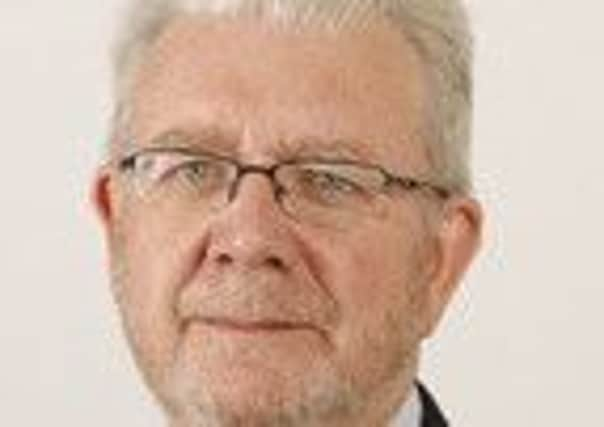SNP face accusations of dropping schools improvement scheme


The scheme was announced in 2013 in an effort to drive up standards, with underperforming schools partnered with those punching above their weight in exams.
Michael Russell, the then education secretary, said the Scottish Improvement Partnership Programme (SIPP) - based on a model developed in Ontario - would produce “real improvement” and be “long-term”.
Advertisement
Hide AdAdvertisement
Hide AdA £700,000 pilot project was set up between a number of local authorities.
However, schools body Education Scotland has confirmed there will be no new funding.
This in spite of a positive evaluation by Glasgow University.
The Scottish Government said the lessons learned on partnership working would be taken forward as part of its latest policy to close the attainment gap between rich and poor.
However, opposition politicians said the original aims of the scheme had never been delivered and accused the SNP Government of short-termism.
Iain Gray, education spokesman for the Scottish Labour Party, said: “This is a classic case of the SNP’s approach to government in general and education in particular. A ministerial announcement with full fanfare, then forget about it and move on to the next photo opportunity.
“At the launch of partnership schools, Michael Russell made a point of saying it was for the long-term, but in fact it was as short-term as ideas come. Yet the evaluation of the pilot was positive, with benefits demonstrated.”
Dr Alan Britton, a senior teacher from Glasgow University’s School of Education, called for a commitment to long-term policies to improve standards.
Advertisement
Hide AdAdvertisement
Hide AdHe said: “It is a recurring theme that predates the current administration.
“The root cause of it is politicians making policy as spectacle so that they are seen as being active.
“The reality is that good educational reform isn’t politically sexy. It is a gradual process that builds on what we know works such as improvements in the competence of teachers.”
However, a spokeswoman for Education Scotland said the lessons learned from the initiative would still be employed.
She said: “The SIPP was a three-year pilot project that encouraged schools to work together across local authority boundaries to support and drive improvement. The methodology behind it was to use collaboration and inquiry to tackle educational inequality.
“Following the conclusion of that pilot project, this approach is now being taken forward as part of the £750 million Scottish Attainment Challenge which has led to more schools than ever using collaboration and inquiry to close the poverty related attainment gap in literacy, numeracy and health and wellbeing.”
A Scottish Government spokeswoman said: “The findings of the three-year pilot have played an important part in our approach to closing the attainment gap.
“The results of this early work are being shared widely across the education system and continue to inform both national and local approaches to improvement as part of the Scottish Attainment Challenge, in particular by encouraging collaboration within the education system.
Advertisement
Hide AdAdvertisement
Hide Ad“Education is our number one priority. That is why we announced in the Budget last year £120m for schools to use at their discretion to close the attainment gap in 2017-18 - £20m more than previously announced.”